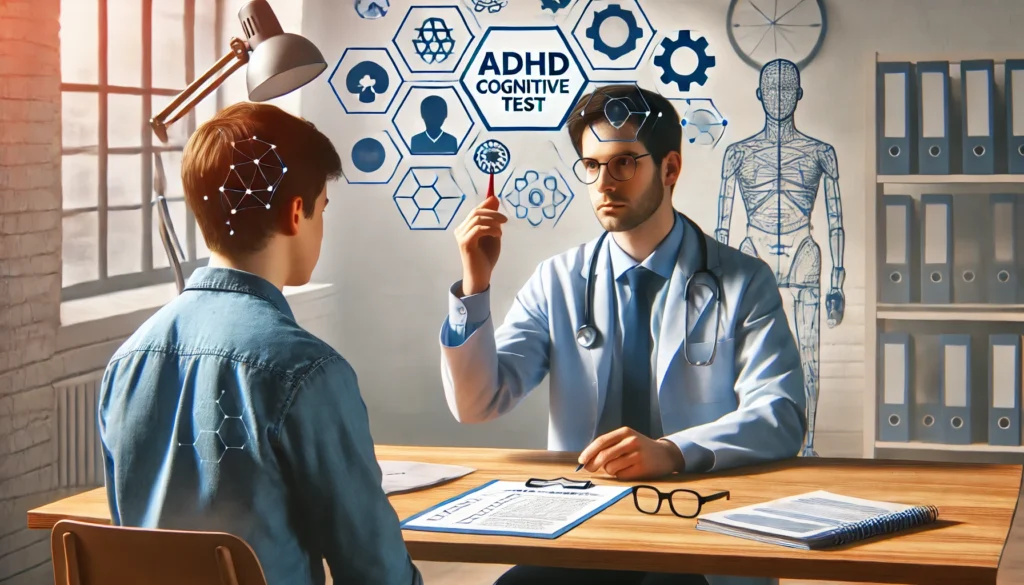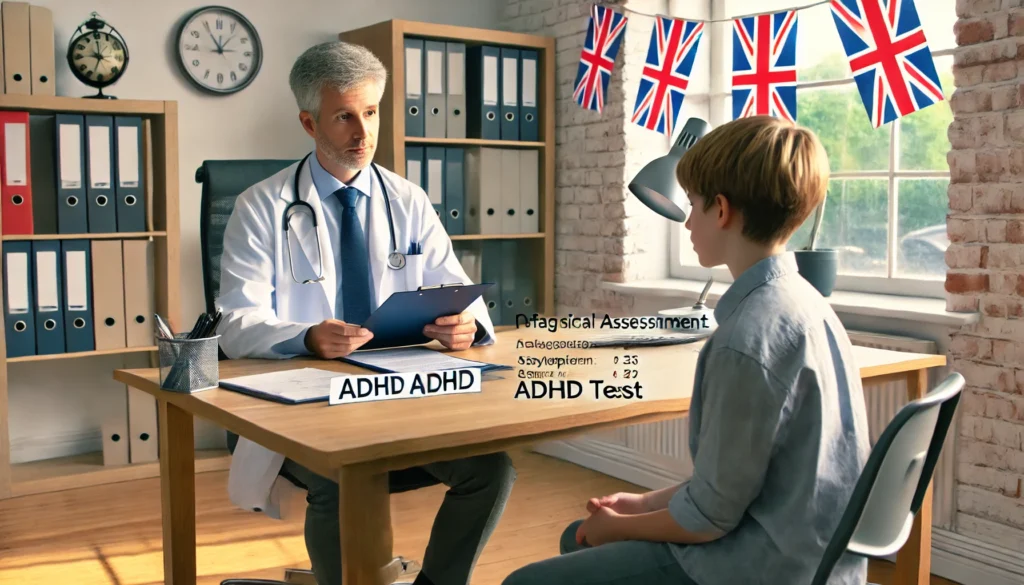ADHD is not a modern invention. Historical accounts suggest that symptoms akin to ADHD have been documented for centuries, albeit under different names and descriptions. The condition’s recognition as a formal diagnosis, however, has evolved significantly over the last few decades, informed by advances in psychological and medical sciences.
You may also like: Enhancing Concentration: Strategies for ADHD
The Evolution of ADHD Recognition
Throughout history, behaviors now associated with ADHD have been observed and recorded, albeit under various terminologies. In ancient texts, individuals exhibiting restlessness and inattentiveness were often misunderstood. By the 20th century, scientific inquiry began to shape a clearer understanding, with ADHD being officially recognized in the Diagnostic and Statistical Manual of Mental Disorders (DSM) in the latter half of the century.
Advances in Psychological and Medical Understanding
The development of ADHD as a recognized condition has paralleled advances in both psychology and medicine. The introduction of psychological testing and the understanding of neurobiological processes have contributed significantly. Studies on brain structure and function, as well as neurotransmitter dynamics, have provided deeper insights into the disorder.
ADHD in Different Cultural Contexts
Cultural perceptions and interpretations of ADHD can vary widely. In some societies, symptoms might be regarded as a lack of discipline, while in others, they are seen as a medical condition requiring intervention. This cultural lens affects diagnosis rates and treatment approaches, highlighting the importance of culturally sensitive diagnostic practices.
Clinical Features of ADHD
ADHD is characterized by a persistent pattern of inattention and/or hyperactivity-impulsivity that interferes with functioning or development. The symptoms can vary widely among individuals, and understanding this heterogeneity is crucial for accurate diagnosis. Some may exhibit predominant inattention, while others display more hyperactive and impulsive behaviors.
Patterns of Inattention
Inattention in ADHD can manifest as difficulty sustaining focus, frequent distraction, and challenges in organizing tasks. Individuals may struggle with tasks that require prolonged mental effort and can often forget routine activities. This can impact academic and occupational performance significantly.
Hyperactivity and Impulsivity
Hyperactivity is often observed as excessive fidgeting, an inability to stay seated, or a tendency to talk excessively. Impulsivity might lead to hasty actions without thought, interrupting conversations, or difficulty waiting for turns. Both behaviors can lead to social and professional challenges.
The Spectrum of ADHD Symptoms
ADHD is not a one-size-fits-all condition. The disorder is often described in terms of its spectrum, with some individuals showing mild symptoms and others experiencing severe impacts. Understanding this spectrum is essential for tailoring appropriate interventions and support.
The Role of Genetics and Environment
Research indicates that ADHD has a strong genetic component, although environmental factors also play a significant role in its manifestation. Understanding these influences is vital for healthcare professionals when assessing and diagnosing the disorder.
Genetic Influences on ADHD
Studies have shown that ADHD tends to run in families, suggesting a genetic predisposition. Specific genes have been linked to the disorder, influencing neurotransmitter pathways that affect attention and behavior. This genetic understanding helps in identifying individuals at higher risk.
Environmental Factors Contributing to ADHD
Environmental factors, including prenatal exposure to toxins, low birth weight, and early childhood adversity, can contribute to the development of ADHD. These factors interact with genetic predispositions, potentially exacerbating symptoms or influencing their onset.
The Interaction Between Genetics and Environment
The interplay between genetic and environmental factors is complex. While genetics may set the stage, environmental influences can modify the severity and expression of ADHD symptoms. This interaction underscores the need for a holistic approach to diagnosis and treatment.

The Importance of Accurate Diagnosis
Accurate diagnosis of ADHD is critical for several reasons. Firstly, it ensures that individuals receive appropriate treatment and support, which can significantly improve their quality of life. Secondly, it helps avoid the pitfalls of misdiagnosis, which can lead to unnecessary medication, stigmatization, and the overlooking of other underlying conditions.
Ensuring Appropriate Treatment and Support
A precise diagnosis allows for tailored treatment plans that address the specific needs of the individual. This can include medication, behavioral therapy, or a combination of interventions that improve functioning and quality of life. Without accurate diagnosis, individuals may not receive the support they need.
Avoiding the Pitfalls of Misdiagnosis
Misdiagnosis can lead to inappropriate treatment strategies that may exacerbate the individual’s difficulties rather than alleviate them. For instance, a person misdiagnosed with ADHD might be prescribed stimulant medications that could worsen symptoms if the actual issue lies elsewhere, such as an anxiety disorder.
Overlooking Other Underlying Conditions
Many conditions can mimic or coexist with ADHD, such as anxiety, depression, or learning disabilities. A thorough assessment is necessary to differentiate ADHD from these other conditions, ensuring that each is addressed appropriately in the treatment plan.
ADHD Assessment in the UK
In the UK, ADHD assessments are carried out by healthcare professionals who specialize in mental health, such as psychiatrists, clinical psychologists, or pediatricians. The process typically involves a comprehensive evaluation that includes a detailed medical history, interviews, and the use of standardized ADHD test tools.
The Role of Healthcare Professionals
Specialists play a crucial role in the ADHD diagnostic process. Their expertise allows for a nuanced understanding of symptoms and ensures that assessments are thorough and evidence-based. The involvement of multidisciplinary teams can also enhance the accuracy of diagnosis.
Comprehensive Evaluation Process
The assessment process in the UK involves multiple stages to ensure accuracy. Initial consultations are followed by detailed interviews and the use of questionnaires designed to assess the frequency and impact of symptoms. This comprehensive approach helps in forming a complete picture of the individual’s condition.
Standardized Testing Tools
Standardized tools are used to supplement clinical evaluations. These tools provide objective data that can help confirm clinical impressions and guide treatment planning. However, they are used in conjunction with clinical judgment rather than as standalone diagnostic measures.
Tools and Tests for ADHD Diagnosis
Standardized ADHD Tests
There are several ADHD test tools available, both online and in clinical settings, designed to evaluate the presence and severity of ADHD symptoms. While online tests can provide a preliminary indication, they should never replace a professional assessment.
Clinical ADHD Testing Tools
In clinical settings, healthcare providers use validated tools like the Conners’ Rating Scales or the ADHD Rating Scale. These assessments provide a structured way to evaluate symptoms and their impact on daily functioning. They help ensure that diagnoses are based on consistent criteria.
The Role of Behavioral Observations
In addition to standardized tests, direct behavioral observations are invaluable. Observing individuals in naturalistic settings, such as schools or workplaces, provides insights into how symptoms manifest in everyday life. This can highlight discrepancies between reported and actual behaviors.
Limitations of Standardized Tests
While standardized tests are useful, they have limitations. They may not capture the full complexity of an individual’s experience or the influence of contextual factors. Therefore, they are best used as part of a broader diagnostic process that includes clinical interviews and observations.
ADHD Test Online: A Word of Caution
While the convenience of online ADHD tests is appealing, they are not a substitute for a thorough evaluation by a qualified healthcare provider. These tests can serve as a useful starting point, but they often lack the depth needed to capture the full spectrum of an individual’s symptoms and history.
The Appeal of Online Testing
Online ADHD tests are readily accessible and can be completed quickly, offering immediate feedback. This can be appealing for individuals seeking quick answers to their concerns about ADHD. However, the results should be interpreted with caution.
The Limitations of Online Assessments
Online assessments often rely on self-reported data, which can be biased or inaccurate. They may not account for the subtleties of symptom presentation or the influence of coexisting conditions. This can lead to misleading conclusions about the presence or severity of ADHD.
The Importance of Professional Interpretation
A qualified healthcare provider can interpret test results within the context of a comprehensive evaluation. They can consider the nuances of symptom presentation and the impact of external factors, providing a more accurate diagnosis and appropriate treatment recommendations.

Navigating the ADHD Diagnostic Process
Seeking Professional Assessment
For those suspecting they might have ADHD, the first step is to consult a healthcare professional with expertise in ADHD assessments. This ensures that the diagnosis is based on a comprehensive evaluation rather than a quick online test.
Choosing the Right Specialist
Selecting a specialist with experience in ADHD is crucial. This could be a psychiatrist, psychologist, or pediatrician with a focus on neurodevelopmental disorders. Their expertise ensures that assessments are thorough and that treatment recommendations are evidence-based.
Preparing for the Assessment Process
Preparation can enhance the effectiveness of the assessment process. Gathering relevant medical records, completing pre-assessment questionnaires, and noting specific concerns or questions can facilitate a more productive evaluation. Being open about symptoms and their impact is also vital.
The Role of Family and Caregivers
Family members and caregivers can provide valuable insights during the assessment process. Their observations can complement self-reports, offering a broader perspective on symptoms and their impact. Involving them in the process can also enhance support and understanding.
Understanding the ADHD Assessment UK Process
In the UK, the process typically involves several stages, including an initial consultation, detailed interviews covering medical and family history, and possibly the use of standardized questionnaires. These steps help paint a complete picture of the individual’s symptoms and how they affect daily life.
Initial Consultation and Screening
The initial consultation serves as a screening phase, where the healthcare provider gathers basic information about symptoms and concerns. This helps determine whether a full assessment is warranted and guides the subsequent stages of the diagnostic process.
Detailed Interviews and History Taking
Comprehensive interviews explore the individual’s medical, family, and social history. This information helps identify patterns of behavior and potential contributing factors. Understanding the broader context of symptoms is crucial for accurate diagnosis and effective treatment planning.
Use of Standardized Questionnaires
Standardized questionnaires are used to systematically assess symptoms and their impact. They provide objective data that complements clinical impressions, helping to confirm or rule out an ADHD diagnosis. These tools are essential components of the assessment process.
Current Trends and Future Implications
Advances in ADHD Research
Recent advancements in neuroimaging and genetics are shedding light on the underlying mechanisms of ADHD. These insights hold promise for more targeted treatments and interventions, potentially transforming the landscape of ADHD management.
Neuroimaging Discoveries
Neuroimaging techniques, such as MRI and fMRI, have revealed structural and functional differences in the brains of individuals with ADHD. These findings contribute to a better understanding of the neurobiological basis of the disorder, guiding the development of new treatment approaches.
Genetic Research Developments
Genetic research is identifying specific genes associated with ADHD, offering insights into its heritability and biological underpinnings. These discoveries may lead to the development of genetic markers for risk assessment and personalized treatment strategies.
The Impact on Treatment Innovations
The insights gained from neuroimaging and genetics are paving the way for innovative treatments. These may include novel pharmacological approaches targeting specific neural pathways or personalized therapies based on an individual’s genetic profile. Such advancements promise to enhance the effectiveness of ADHD management.
The Role of Technology in ADHD Diagnosis
Innovations in technology are also influencing the diagnostic process. Digital tools and apps that track behavior and symptoms over time are becoming valuable adjuncts to traditional assessment methods, offering new ways to understand and manage the condition.
Digital Tools for Symptom Tracking
Apps and digital platforms designed to track symptoms and behaviors over time provide real-time data that can inform diagnosis and treatment. These tools offer insights into patterns and triggers, helping individuals and clinicians better understand the condition’s dynamics.
Telehealth and Remote Assessments
Telehealth services are expanding access to ADHD assessments, particularly in remote or underserved areas. Remote consultations and digital assessments ensure that individuals receive timely evaluations, overcoming geographical barriers to care.
Enhancing Traditional Assessment Methods
Technology is enhancing traditional assessment methods by providing additional data points and facilitating more comprehensive evaluations. When integrated with clinical judgment, digital tools can improve diagnostic accuracy and inform more effective treatment plans.

Practical Advice for Individuals and Families
Educating Yourself and Others
Education is a powerful tool. Individuals and families affected by ADHD should seek to educate themselves about the condition, its symptoms, and the available treatments. This knowledge empowers them to make informed decisions and advocate for appropriate care.
Accessing Reliable Information
Reliable sources of information, such as reputable websites, books, and support groups, provide accurate and up-to-date knowledge about ADHD. Understanding the condition’s nuances helps individuals navigate the complexities of diagnosis and treatment.
Raising Awareness and Reducing Stigma
Educating the broader community about ADHD can reduce stigma and promote understanding. Sharing information about the condition’s challenges and strengths can foster empathy and support, creating a more inclusive environment for those affected.
Continuing Education and Advocacy
Ongoing education is essential as new research and treatment options emerge. Staying informed allows individuals and families to advocate effectively for the best possible care. Engaging with advocacy groups can also amplify their voices in influencing policy and practice.
Building a Support Network
Living with ADHD can be challenging, but a strong support network can make a significant difference. Connecting with others who understand the condition can provide emotional support and practical advice, making it easier to navigate the ups and downs of ADHD.
Connecting with Support Groups
Support groups offer a sense of community and shared experience. They provide a platform for exchanging tips, strategies, and encouragement, helping individuals and families feel less isolated in their ADHD journey.
Involving Educators and Employers
Educators and employers play a crucial role in supporting individuals with ADHD. Open communication about needs and accommodations can lead to more supportive educational and work environments, enhancing performance and well-being.
Leveraging Online Communities
Online communities provide accessible support and resources for those affected by ADHD. These platforms connect individuals and families globally, offering diverse perspectives and shared experiences that can inspire and inform.
Conclusion
Accurate diagnosis of ADHD is essential for effective management and improving the lives of those affected by the disorder. While the diagnostic process can be complex, understanding the importance of a thorough assessment and the tools available can guide individuals and families towards better outcomes. As research continues to evolve, there is hope for even more precise and effective approaches to ADHD diagnosis and treatment, paving the way for a brighter future for those with ADHD.
Further Reading:
Attention deficit hyperactivity disorder: diagnosis and management
ADHD Testing for Adults UK: 4 Steps to Get Diagnosed
Important Note: The information contained in this article is for general informational purposes only, and should not be construed as health or medical advice, nor is it intended to diagnose, prevent, treat, or cure any disease or health condition. Before embarking on any diet, fitness regimen, or program of nutritional supplementation, it is advisable to consult your healthcare professional in order to determine its safety and probable efficacy in terms of your individual state of health.
Regarding Nutritional Supplements Or Other Non-Prescription Health Products: If any nutritional supplements or other non-prescription health products are mentioned in the foregoing article, any claims or statements made about them have not been evaluated by the U.S. Food and Drug Administration, and such nutritional supplements or other health products are not intended to diagnose, treat, cure, or prevent any disease.


